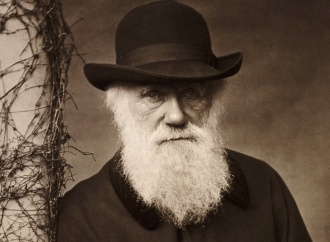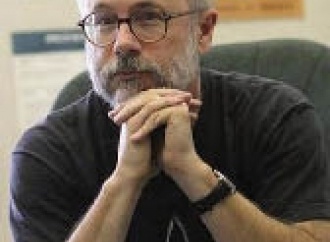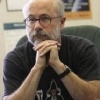In Italy the currents of Antidarwinist thought are quite limited, luckily. The Catholic Church, which has a considerable influence on Italian culture, has taken an open position towards the theory of evolution, even if the following quotation from the encyclical Fides et ratio of John Paul II appears somewhat ambiguous:
Later, in his Encyclical Letter Humani Generis, Pope Pius XII warned against mistaken interpretations linked to evolutionism, existentialism and historicism. He made it clear that these theories had not been proposed and developed by theologians, but had their origins "outside the sheepfold of Christ". He added, however, that errors of this kind should not simply be rejected but should be examined critically: "Catholic theologians and philosophers, whose grave duty it is to defend natural and supernatural truth and instill it in human hearts, cannot afford to ignore these more or less erroneous opinions. Rather they must come to understand these theories well, not only because diseases are properly treated only if rightly diagnosed and because even in these false theories some truth is found at times, but because in the end these theories provoke a more discriminating discussion and evaluation of philosophical and theological truths".
Namely: it is necessary to know better the theory of evolution in order to defend the Divine Truth.
Apart from this, however, the currents openly Antidarwinist are surely a minority.
As for the academic field, Darwinism is largely approved. The only prominent exceptions are represented by Prof. Giuseppe Sermonti and Prof. Antonino Zichichi.
Born in Rome in 1925, graduate in agronomy and biology, Sermonti has taught at the University of Palermo and Perugia. He has developed researches in the field of genetics and he has had important roles in some scientific institutions. He has written numerous scientific books and some texts of critical reflection on modern science. Moreover, he is the author of works devoted to a naturalistic analysis of the fables and of some "table comedies" (that are recited from interpreters sat around a table).
The criticism of Sermonti to Darwinism starts in 1970 and reaches its extreme peak claiming that:
The idea of a gradual evolutionary development of our species from creatures like the australopithecus, through the pithecanthropus, the sinanthropus and the neanderthaliano, must be considered totally ground-less and it must be rejected with decision. The man is not the most recent ring of a long evolutionary chain but, contrarily, it represent a taxon that exists substantially unchanged at least since the dawns of the Quaternary Era [...] On the morphological and anatomo-comparative plan, the most primitive - or less evolved - between all the ominidis results to be really the man of modern type! [...] Are certainly less distant from truth those people that [...] sustain the opposite hypothesis, and that is that Australopiteci, Arcanthropi and Paleoanthropi are all forms derived by the man of modern type!
In his recent book Dimenticare Darwin (1999 - Forget Darwin), Sermonti turns his criticisms towards the modern molecular interpretations of Darwinian thought by saying that:
The molecular revolution has consisted just in the abandonment of the naturalistic observations, with explicit indifference for the forms.
On the contrary, the author vindicates the importance of the study of the "form" at different levels and of the organism in his integrity.
Also, on an epistemological plain, Sermonti manifests an evident antiscientific attitude, as it is clearly expressed by the following passages:
I remember an evening, I wandered between the benches of the empty classroom and I asked myself: "Why do I teach Genetics? Why do I teach the Science? I teach something to which I don't believe, rather I teach the contrary one of this to which I believe". The science doesn't help us there to know the reality, rather it is employed to teach us that the reality count nothing, only some abstract principles, that the man of the road can not understand, are worth. The science is not even useful. It pours his products on the society, it creates artificial necessity that coincide with what it knows how to produce.
[...] the whole care contained in the foundation of the Technique and the contemporary Science has consisted in depriving the human work of every meaning, that is deritualizing it. The meaning is a exigence that limits the efficiency, forcing the operator to a quantity of formal fulfillments that distract it to pursue directly the point of arrival. The big progress realized by the technique have been simply the result of abolition of every sacredness from the human operations: this has made, as for enchantment, marvelously efficient the human practices, this have allowed to set every thing in commerce, to develop from every operation an industry. To one price only, just: what everything renounced his meaning. But the nature withstands to the desecration .
Regarding the experimental method, pillar of the modern science, he claims:
The experimental method compares technical activity to that cognitive, inaugurating so a fatal misunderstanding for the science.
The heterodox quotation of Sermonti could continue, but it appears now clear that his ideas possess little rigor and scientific objectivity. They appear speculations of an individual that, dissatisfied by the inevitable limits that science imposes, tries to overcome them giving free reign to his own personal opinions and his own personal vision of the world.
Antonino Zichichi, born in Trapani in 1929, is professor of superior physics at the University of Bologna. He has had important roles in scientific institutions and has founded a "Center of scientific culture Ettore Majorana" in Erice, Sicily, which he directs since 1963. He has published various books on popular science and he doesn't miss a chance to state and defend his unshakable Catholic faith.
In his book Perché io credo in Colui che ha fatto il mondo (1999 - Why I believe in He who created the World), he writes:
Dominant culture has set the theme of the biological evolution of the human species on the pedestal of a great scientific truth in total contrast with the Faith. [...]
Arrived to the Homo Sapiens Neaderthalensis (one hundred thousand years ago around) with a brain of superior volume to ours, the Theory of the Biological evolution of the human species says us that, forty thousand years ago around, the Homo Sapiens Neaderthalensis is extinguished in inexplicable way. And it appears finally, in way as much inexplicable, twenty thousand years ago around, the Homo Sapiens Sapiens. That is us. A theory with lacking rings, miraculous developments, inexplicable extinctions, sudden disappearances is not galilean science. [...] How can an application of the electromagnetism, still very defective and lacunose - what is the theory of the human evolution - to pretend to deny the existence of God? Yet the man of the road is convinced that Charles R. Darwin has shown our direct descent from the monkeys: for dominant culture not believing to the evolutionistic theory of the human species is fit of serious obscurantism, comparable to persist in believing that is the Sun to turn around, with the firm Earth to the center of the world. True is the exact contrary.
The oscurantistis are those people that pretend to consider scientific truth a theory deprived of one elementary structure mathematics and without some experimental proof of galilean kind. [... ] We know with certainty that the biological evolution of the human species is firm from at least ten thousand years (from the dawn of civilization) [...] moment from which we are able to study with certainty the properties of this form of living matter said man. During ten thousand years this form of living matter has remained exactly identical to itself. Biological evolution: zero.
By saying this Prof. Zichichi shows to own a very personal concept of galilean science and to ignore a big portion of the proofs that confer value to the evolutionistic theory.
Outside the academic world, we find that in Italy there exists a Centro Studi Creazionismo (Web site: http://www.creazionismo.org). It is an association that sets forth:
- To spread knowledge by whatever means of what the Bible teaches about the creation of the world;
- To make known the studies that have been and continue to be done in Italy and other countries on the subject of creationism as a viable alternative to evolutionism and any other theory that denies the idea of a Creator God;
- To promote dialog through all available means with creationists, evolutionists and all those who wish to understand the biblical message regarding the great issues of human existence;
- To form in the area of public opinion an awareness that evolution is only a hypothesis and that it is necessary to know the biblical message of creationism, today more relevant than ever;
- To sponsor studies, lectures and conferences on the subject of creationism;
- To introduce into both public and private schools the biblical message of creationism and the scientific studies that confirm it;
- To create a library in which to collect whatever Italian and foreign books and periodicals are needed to spread the creationist message.
The Center publishes a journal, Eco creazionista, that contains articles and reviews of theological and antievolutionistic matters. Contrarily to the creationists from other countries, the Italians appear to be less aggressive and, at least on paper, more open to dialogue. On their Web pages that illustrates the nature of the Center we read in fact:
The "Centro Studi Creazionismo" (CSC) is a voluntary association of like-minded people who, while respecting modern culture and science, aim to promote a dialog open to all about the relationship between science and faith and between the biblical message and human knowledge.
In particular, without being narrow-minded, it aims to point out that evolutionistic theories cannot be considered as undisputed scientific fact without considering the alternatives.
Both in Italian schools and in the wider community, for example, criticisms of evolutionistic theories should not be ignored, nor should the validity of the creationist alternative be discounted.
We are convinced that the Biblical account of creation and the laws of nature are not in conflict with each other but, on the contrary, are convergent.
In short, the aim is to make available to Italian-speaking people more balanced information, so that young people and other open-minded inquirers can make an informed choice between the evolutionistic world-view and that based on the Bible.
According to the Word of God, physical matter and life are not the product of chance but of design, the work of the Supreme Programmer.
Acknowledgements
The author is grateful to Massimo Polidoro for his contributions to this article.
Silvano Fuso is teacher of chemistry in high schools and attends to didactic of the sciences and to epistemological problems. He collaborates with some magazines of didactic and popular science and is the author of some books like which Realtà o illusione? Scienza, pseudoscienza e paranormale (1999).
From:
AA.VV., "DARWIN DAY COLLECTION ONE. The Single Best Idea, Ever ", Tangled Bank Press,
(pubblicazione prevista per l'inverno 2002-2003).
















